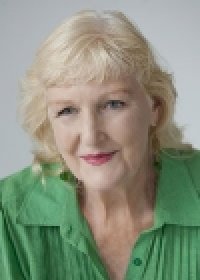Judith Armstrong

Judith Armstrong’s most recent book, War & Peace and Sonya, has just been republished in London by the Unicorn Press.
Let no one say that all travel memoirs fall into the same predictable box. Otherland and Mother Land, two such works from Melbourne writers, may enjoy rhyming titles and pluck similar strings, but their styles could hardly be more dissimilar. The first, a new book from Maria Tumarkin, describes a journey to her Ukrainian/ Russian country of birth with her twelve-year-old daughter in tow; the secon ... (read more)
From the horror of ‘traumascapes’ – the eponymous subject of Tumarkin’s first book (2005) – to the noble quality we call courage is one of those small steps that equate to giant leaps. Having spent a long time thinking and writing about the devastation caused to particular sites during the harsher episodes of recent history, Tumarkin has moved on to the human sentiments associated w ... (read more)
The Wheeler Centre recently hosted ‘four provocative nights’ based on the assertion that Australian criticism of film, theatre, books and the visual arts is, in its own words, ‘failing us all’. The series was entitled ‘Critical Failure’. For ABR readers unable to attend, here is one person’s account of the books-related panel.
There was certainly a sense of failure in the room at th ... (read more)
From a clutch of novels including the award-winning Camille’s Bread (1996), Amanda Lohrey has now turned to shorter literary forms, notably two Quarterly Essays (2002, 2006), a novella (Vertigo, 2008) and this new collection of short stories. At the 2009 Sydney Writers’ Festival she publicly confessed her new leaning, arguing the benefits of genres more easily completed by both writer and read ... (read more)
What’s a nice girl called Anastasia doing in the Whangpoa River? Maybe she’s the daughter of the last tsar who everyone thought was dead, or maybe it’s just a girl who looks like a Russian princess and happens to have the same name. If the proposition sounds familiar, be assured by Colin Falconer that Anastasia Romanovs were thick on the streets of Shanghai after the White Russian diaspora o ... (read more)
What’s the use,’ asks Alice before wandering away from her uncommunicative sister, ‘of a book without pictures or conversations?’ Grown-up readers can probably manage without the former, but it is unusual to find a novel with as little dialogue in it as Andrea Goldsmith’s Reunion, or one that so deliberately ignores the common injunction ‘Show, don’t tell.’
Yet Goldsmith has sever ... (read more)
The scope of this novel could hardly be more ambitious. It ranges from the landing ten thousand years ago of prehistoric men in primitive rafts on the shores of what would one day be known as the Kimberley, to the apparition of a young asylum seeker off a leaky, sinking boat in roughly the same locality during the present inhospitable times. In other words, it meets the challenge of major issues b ... (read more)
Alex Miller has been named as a finalist in the 2009 Melbourne Prize for Literature, a rich award given triennially to a Victorian author for a body of work. It is hardly surprising that a writer who has twice won the Miles Franklin Award and frequently been the recipient of, or short-listed for, other prizes should be among this group of contenders; Lovesong is Miller’s ninth novel since the pu ... (read more)
